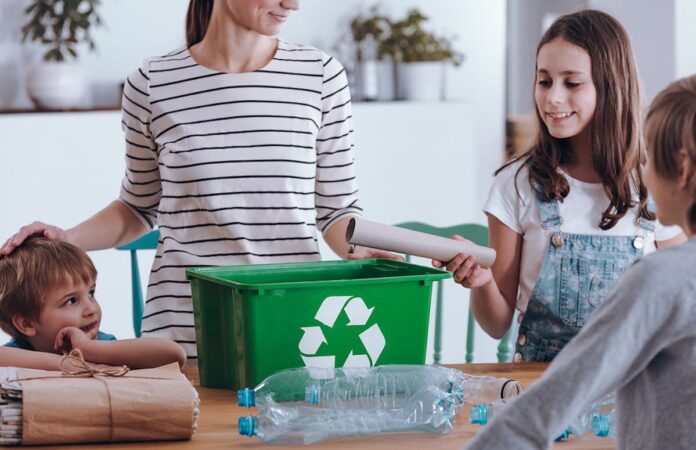To stay healthy and conserve the environment as well, adequate waste management must be strictly followed. Due to this misconception, many err without knowing them which leads to more landfill garbage increase, environmental damage, and penalties by law sometimes. From not separating recyclables to ignoring local guidelines, all of these can cost dearly. Since services like Skip Hire Parbold can provide custom solutions for effective and environmentally friendly waste disposal, this process will become much easier. This paper shall discuss the seven common mistakes made in managing household waste. Tips on what to do will be given based on these findings.
Not Separating Recyclables Properly
The common mistake most individuals make in handling household waste is not separating recyclables properly. Most of them are found mixed up in general trash due to either ignorance or laziness, plastics, glass, paper, and metal. This increases waste in landfills and wastes precious resources that can be reused again. Avoid this practice by creating a recycling station in your home. Label the station clearly, and educate the household on what is recyclable.
Inadequate Disposal of Hazardous Substances
If placed in other household waste bins, it could even be dangerous for the environment; this may sometimes make them a risk factor for human safety, as possible health risks occur. Check nearby facilities that allow hazardous waste dumping or attend events for hazardous material collection in communities. Most regions provide special services to dispose of wastes safely. It takes some days to remove hazardous materials in the right way; this safeguards the environment as well as obeying the set legal regulations.
Overloading Bins
Overfilled bins are commonplace in many households. They are always overfilled after special occasions and holidays. Overloading bins often results in spillage, attracts pests, and creates a messy environment. It can also lead to collection problems due to the waste collection company failing to collect a full bin. Plan your time for waste collection and utilise other services to help control large amounts of waste. Clean bins are in place, and collection is collected without a hitch.
Not Managing Food Waste
Food wastage is one of the major wastes most households produce but dispose of inappropriately. The deposition of food wastes in general bins will just lead to more landfills and greenhouse gases that are detrimental to human life. Composting is an effective way of controlling food waste since it breaks down organic matter into nutrient-enriched fertilisers meant for use in your garden. Where this is impossible, check with your local council to see if they collect food waste. Proper management of food waste reduces adverse impacts on the environment and enhances a lifestyle that is friendly to the environment.
Use of non-biodegradable bags
The use of plastic bags has still been embrace for the disposal of waste, although not without contributing to problems in the environment. Non-biodegradable types may take hundreds of years to decompose and release their held toxins into the soil and water. The use of biodegradable or compostable alternatives will help reduce one’s footprints with minimal effort to get start. A good approach is taking to harm the environment less with these perishable things. This use is a step forward for eco-friendliness and responsible waste management.
Ignores Local Regulations on Waste Disposal
Each locality has its set of rules and regulations on waste disposal, which might include recycling procedures, handling hazardous materials, and collection schedules. Ignoring these rules might result in some fines, inefficient waste management, and even environmental damage. Understand the rules in your locality and follow them. Such services ensure that you operate within the bounds of the laws and rules set forth about waste. Being aware of those local regulations in your area can ensure the health of your community as well as the environment.
The Disposal of Reusable/Donatable Goods
A lot of what is wast would find perfectly good utility elsewhere in the world or even on the other side of town. Old clothes, old furniture, old computer equipment, and other normal household stuff. Determine if it should be repair or reused, or iif it s something for a local charity. The charity also wastes fewer items, and the community members can be retain who need what you want no more. Changing attitudes regarding unwanted items is one way by which positive impacts on society and environmental impacts can be made.
Conclusion
Effective waste management begins at home. Avoid the most common mistakes: failing to separate recyclables, mishandling hazardous materials, and ignoring local guidelines. And the impact you leave behind on the environment will be immense. Services provide easy solutions and help in making it easy to follow eco-friendly procedures. As always, it all adds up to a clean, greener future. It calls on the public to take the initiative on waste management to change their attitudes and inspire others to improve. Together, we can change the world toward sustainability. Also read more usatimehub.co.uk interesting articles.








